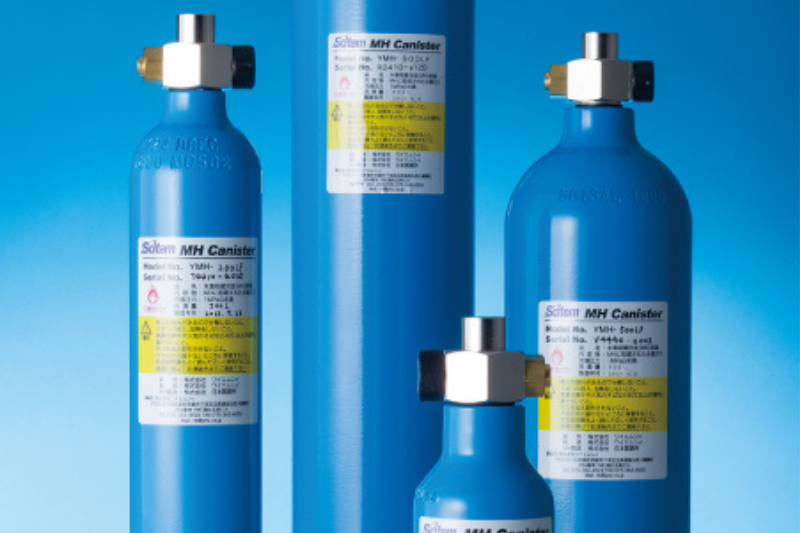Japanese startup Scitem has developed a portable emergency power generation system fuelled by replaceable hydrogen fuel cartridges, bridging the gap to accessible decarbonisation.
This spring, Scitem, a Japanese startup founded in 2017 in Ishikawa Prefecture, will market a portable emergency power generation system fuelled by replaceable hydrogen cartridges. Scitem also produces hydrogen gas generators and hydrogen refilling systems.
These generators are approximately the size of a briefcase with hydrogen canisters that react with oxygen in the air to generate electricity via an internal hydrogen fuel cell. The electricity can charge smartphones and other devices with plugs and USB cables.
Dissimilar to batteries, the hydrogen cartridges do not discharge electricity, which means they are resistant to degradation. Scitem has developed a prototype with a 30-watt output, compatible with laptops.
Pricing is still being explored by the startup, but the system is predicted to sell for around JP¥500 thousand, or US$4.4 thousand, upon mass production. Scitem plans to market the generators with different kinds of electrical outputs based on individual orders.
Thus far, Scitem produces the hydrogen canisters to be sold to companies researching in the hydrogen field. Emergency power generation is the key to develop new customers for the hydrogen storage units.

The hydrogen canisters can also be used to power mobility devices. Scitem has joined forces with Gita, another Ishikawa outfit that designs machinery and labour-saving devices, to develop a hydrogen fuel cell that can be installed internally along with a replaceable hydrogen cartridge.
This replaces the need for an engine, which means there is less vibration and no carbon dioxide emitted. This technology can be used for automated guided systems, kick scooters, and much more.
According to Scitem President Kan Tanaka, the hydrogen cartridges “can be replaced like dry-cell batteries so continuous operation is possible. There’s no need to build hydrogen stations.”
The reason this research is so important is because hydrogen energy is one of the keys to decarbonisation. Its widespread adoption is hindered by storage and transportation infrastructure, and Scitem’s canisters can waylay this challenge, if produced at an appropriate price point.
Related Articles
Japanese Corporations Team Up to Build Hydrogen Economy
Aeon Malls to Use 100% Clean Energy by 2040
6 Lessons the World Can Take From APAC’s Renewable Energy Success





